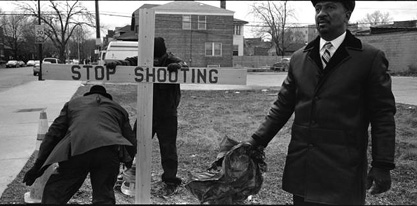Tag: WNET
WNET responds to report on funding for pension series
New York’s WNET issued a statement responding to a PandoDaily article that scrutinized funding for its topical reporting series, The Pension Peril. In the article, published ...PandoDaily article questions funding of WNET pension series
Charges that a public TV reporting initiative about pensions is ethically compromised by its funding sources led to a fiery exchange today ...Afternoon roundup: Ombud complaints down, filmmaker knocks WETA
• In his annual review of objectivity and balance in CPB-funded programming, CPB Ombudsman Joel Kaplan noted “far fewer complaints directed at public ...In review of pubTV stations, CPB’s Krichels sees ‘energy in the system’
Ted Krichels, CPB’s senior v.p. for system development and media strategy, recently talked to Current about the 50-page “Public Media Models of the ...Richard Heffner, WNET pioneer and TV host, dies at 88
Richard Heffner, the founding g.m. of New York’s WNET/Thirteen network and longtime host of public affairs program The Open Mind, died in ...Pubmedia stations, initiatives on list of latest Art Works grants from NEA
Alabama Public Television, WHYY, Transom.org and New York Public Radio are among the grantees.Liberal groups deliver petitions to WNET, demand PBS air Citizen Koch nationwide
Representatives of several liberal groups delivered signed petitions to New York City’s WNET Aug. 13, urging the station to ask PBS to ...Nashville-based radio music show heads to public television
Music City Roots: Live from The Loveless Cafe, a weekly radio show and HD webcast featuring roots, alt-country and Americana music from Nashville, is ...Public media wrestles with legality of unpaid internships
As managers grapple with how to cultivate young, diverse talent as public media leaders, questions of whether to compensate interns — and ...Rejected by ITVS, Citizen Koch rakes in Kickstarter dough
Citizen Koch, a documentary about the growing influence of money in politics that lost a pot of planned public TV funding in ...Pubradio contenders dominate radio division of Sigma Delta Chi Awards
Public radio reporters took all nine awards for radio reporting in this year’s Sigma Delta Chi Awards, which recognize outstanding reporting on ...All-Star Orchestra to bring classical masterworks to WNET, APT
The All-Star Orchestra, made up of top professional musicians from across the country, will produce eight pubTV programs of classical masterworks. The ...NEA announces 2013 media arts grants; OVEE and AIR projects among recipients
The National Endowment of the Arts announced $4.68 million in funding to 76 media-arts projects April 23, including new grantees such as ...Scarce funding limits public media’s response to gun debate
The mass shootings last year in Colorado, Wisconsin and Connecticut reawakened Americans to recurring tragedies of gun violence and rekindled a national ...Public TV’s first TED Talks Education special tapes live this week
TED, the nonprofit behind the high-profile conferences about ideas in technology, entertainment and design (as well as NPR’s new weekend series), and ...






